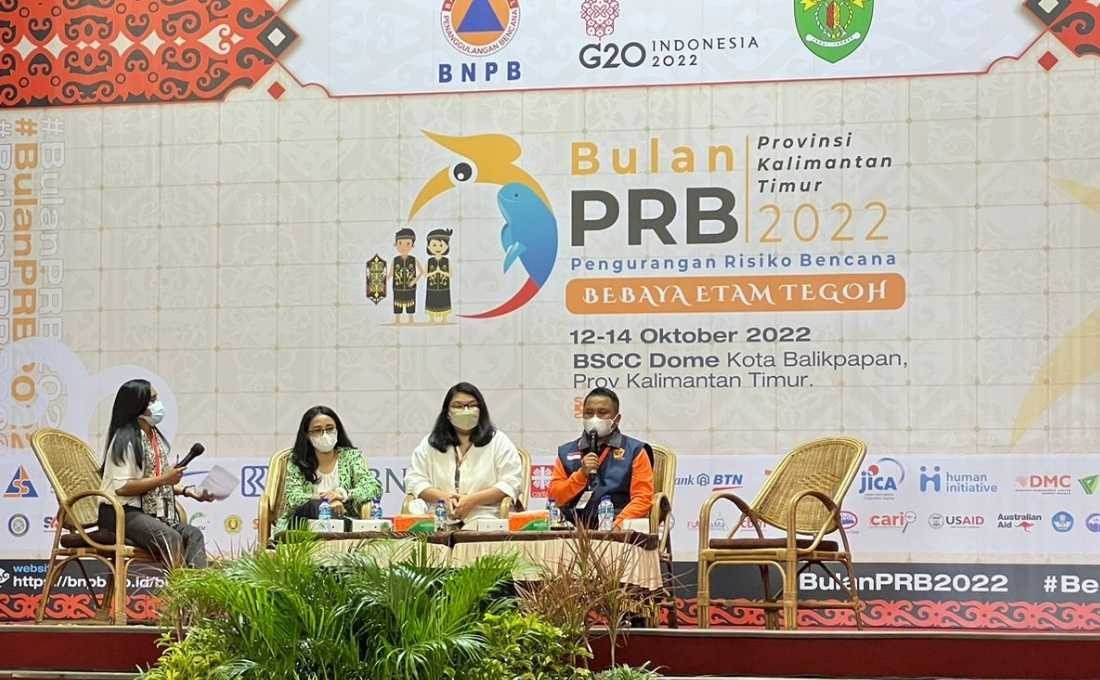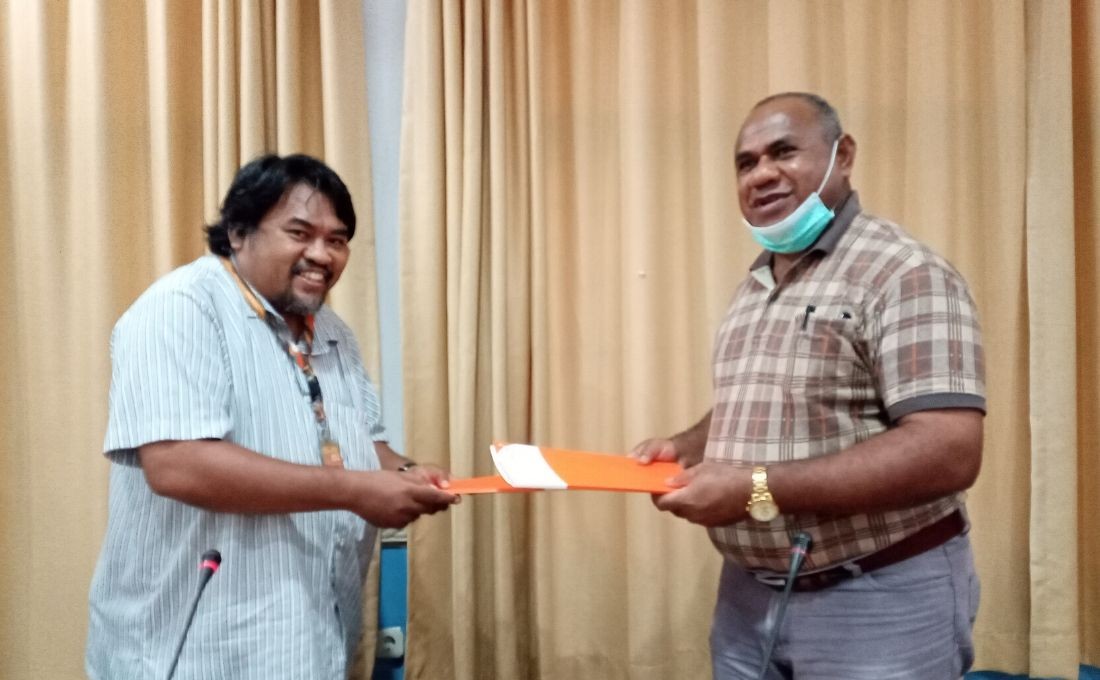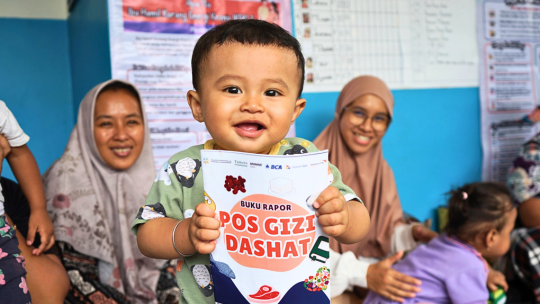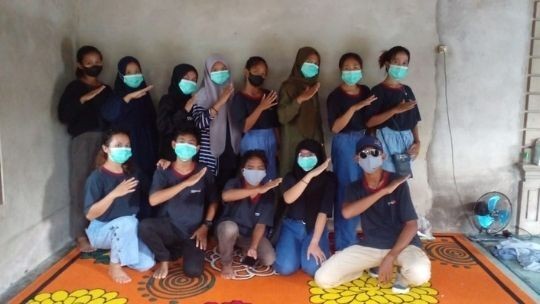Distribute Aid is now Easier

Agus Wijaya (30) has been a member of the NTB Youth Movement Communication Forum (FKGP) since 2009. Together with this forum, Agus is actively involved in community social activities.
During the Lombok earthquake in 2018, Agus and his colleagues also became affected by the 7.0 magnitude earthquake. However, they continued to respond to disasters by distributing aid from individuals or organizations to the affected communities at that time.
Now, Agus has a different experience of distribution of aid when distributing cash voucher program (CVP) for the ICSR project in NTB, the result of a collaboration between Wahana Visi Indonesia and FKGP, funded by DFAT (Department of Foreign and Trade) Australia.
"The distribution of aid that we carried out during the Lombok Earthquake did not use a needs assessment beforehand, so the goods distributed were often not according to the needs of the community. In addition, we were unable to identify people who had or had not received assistance because we did not have data by name by name. address,” said Agus, telling his previous experience.
Agus explained that he encountered different things when he was involved in the WVI ICSR project. Through the use of the LMMS (Last Mile Mobile Solution) application, the aid distribution process that he does become easier. According to him, the initial community needs assessment process, also helps the community to get assistance according to their needs.
“Prospective aid recipients are registered in the LMMS system first so that people who come to receive assistance only need to show the LMMS card that has been distributed previously. As a result, the distribution process runs in an orderly and fast manner," Agus added.
WVI implements the ICSR project in collaboration with 12 local partners spread across NTT, NTB, Central Sulawesi, North Maluku, and Papua. The distribution of this assistance aims to help families affected by COVID-19. They do not receive government social assistance and are disabled, able to meet basic family needs and children's education for a minimum of two months.
This assistance is given in 2 stages, each household gets Rp600,000 per stage. A total of 4,189 beneficiaries were reached through this app, with 2,219 disabilities (975 boys, 902 girls, 196 boys, and 146 girls). By using this application, aid can be distributed quickly and effectively.
Written by: Rista Simbalagi, MEAL Coordinator of ICSR Project of Wahana Visi Indonesia



